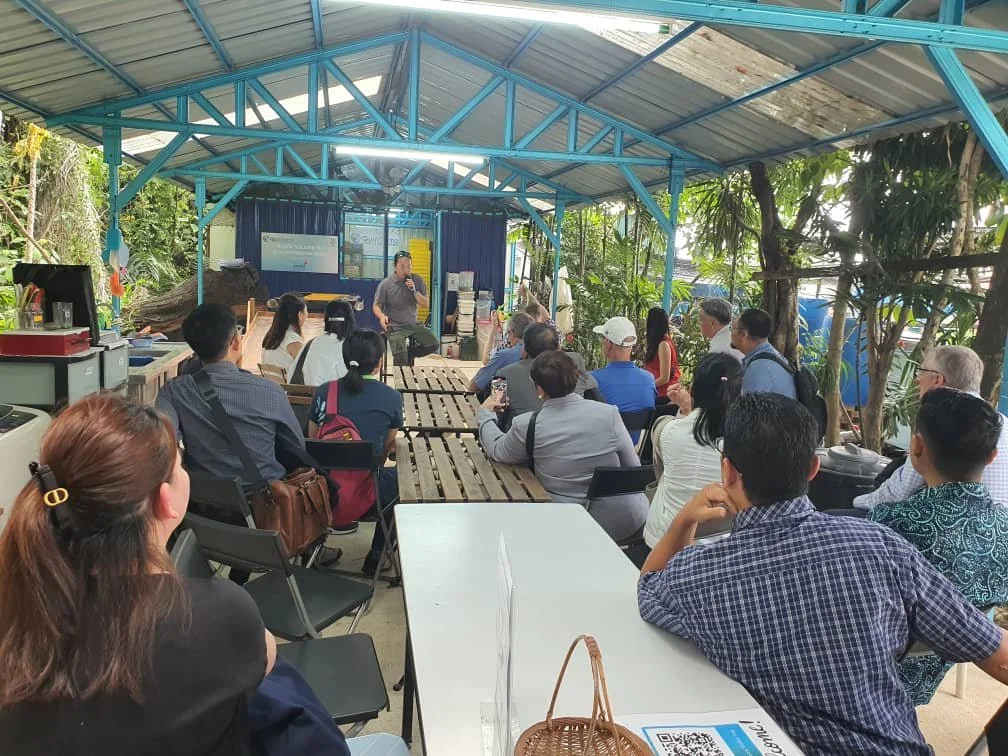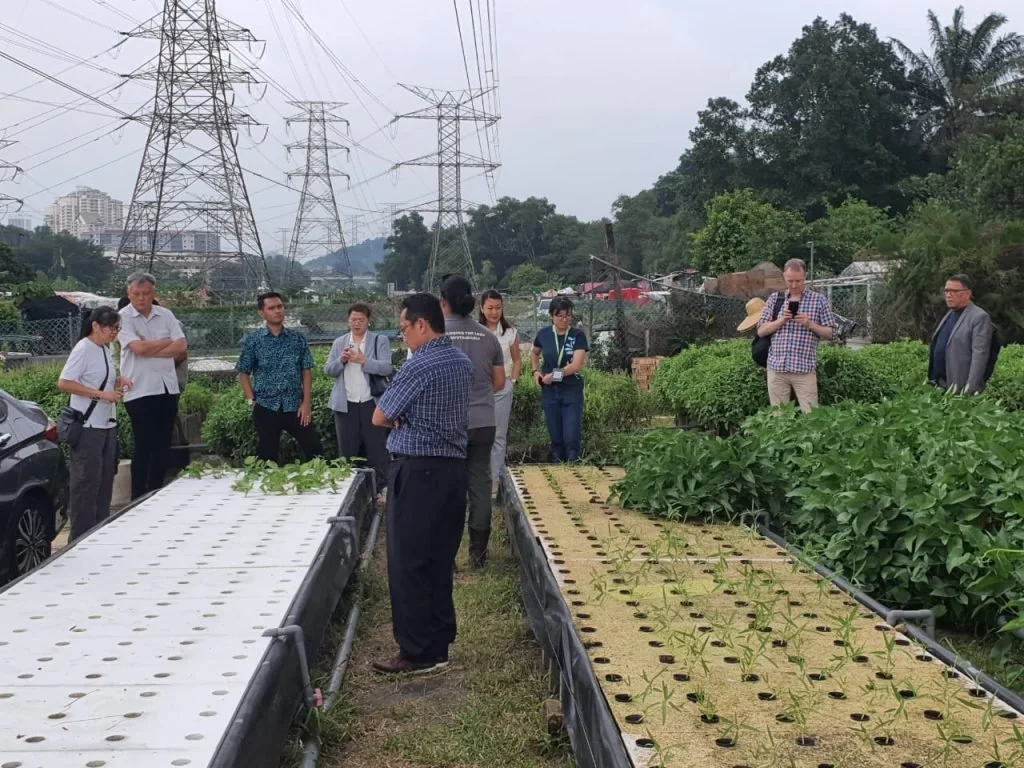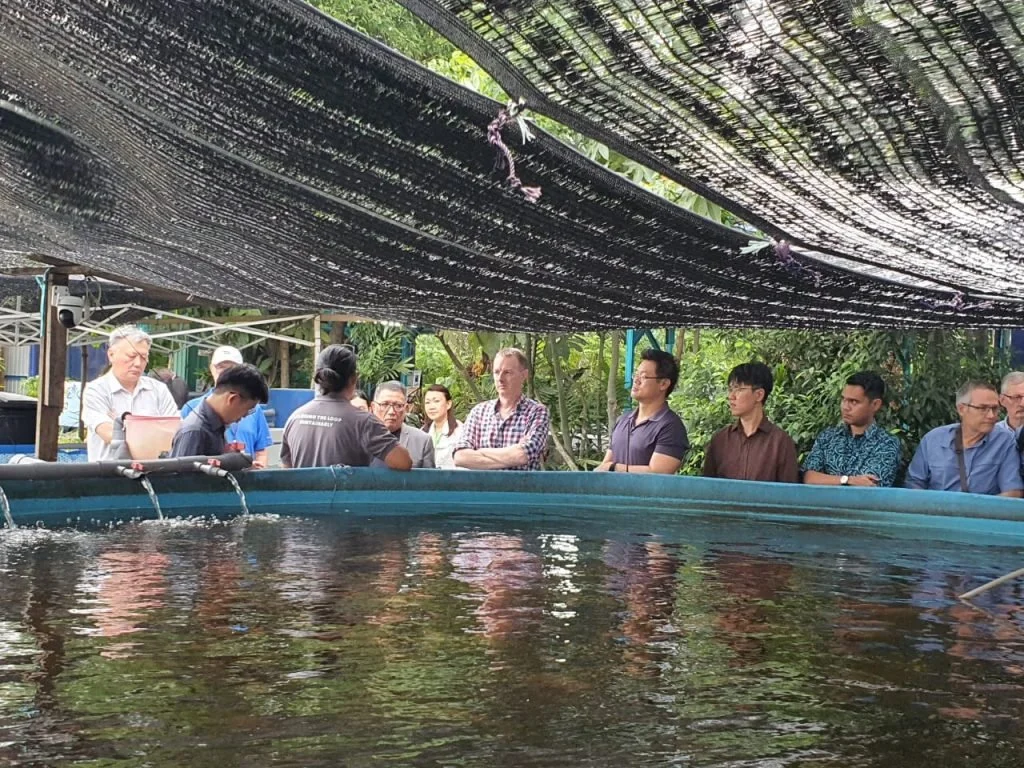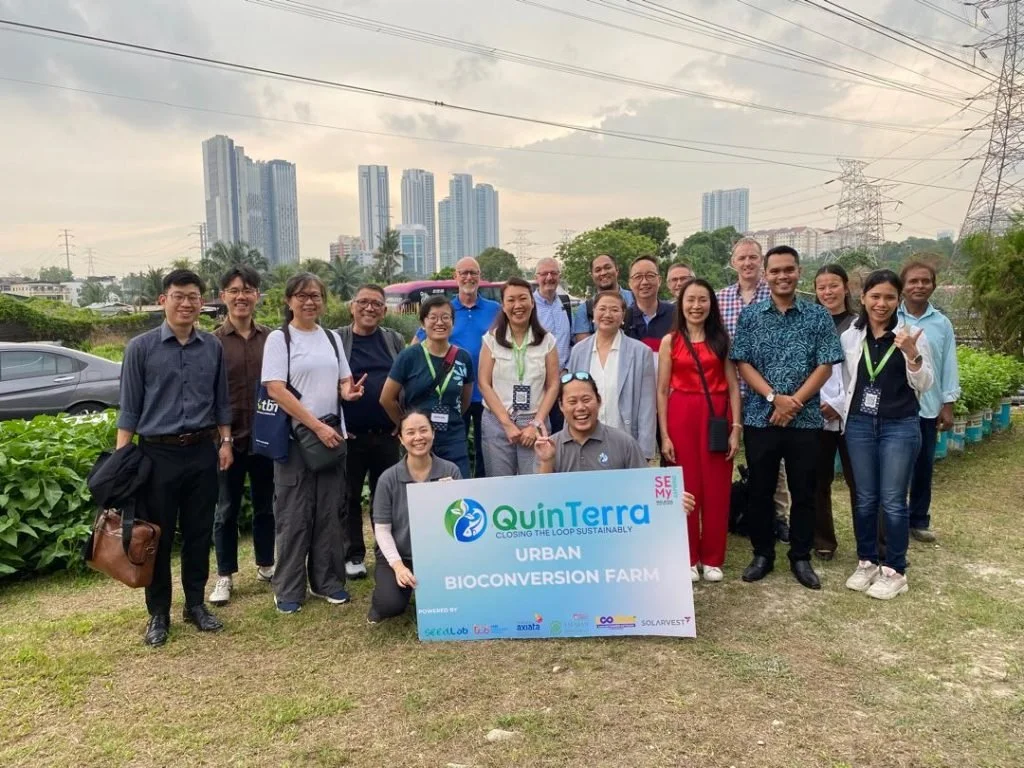QuinTerra Urban Bioconversion Farm – TBN Asia Impact Trip
On 28th August, our TBN Asia Conference delegates had the chance to step out of the city buzz and into something very different, an urban farm located under power pylons in the heart of Kuala Lumpur. This was QuinTerra, a homegrown GreenTech Impact organisation with a bold mission: turning food waste into sustainable solutions.
The visit began with a warm welcome and a walkthrough of the farm. Delegates were introduced to QuinTerra’s closed-loop farming model, where food waste is upcycled into feed and fertiliser through Black Soldier Fly Larvae (BSFL). These larvae then become a crucial input for aquaponics, supporting the growth of both fish and vegetables. The loop continues as the produce is sold back to communities and F&B outlets, showcasing a circular system where nothing goes to waste.
We moved from station to station:
– At the Food Waste Station, the team explained how food scraps are treated with enzymes to prevent odour, allowing waste to be stored and converted efficiently.
– At the BSF Station, we learned about the breeding process of the soldier flies and how their larvae play a role in waste reduction and animal feed.
– At the Aquaponics Station, delegates gathered around large tanks of fish, seeing firsthand how larvae-fed aquaculture integrates with vegetable farming to create a regenerative ecosystem.
Time was tight, so we weren’t able to explore the full range of hands-on activities. However, some lucky delegates still got to experience the fun of feeding fish with the larvae, a small but memorable glimpse into how food waste can be transformed into life.
What stood out was how practical and scalable QuinTerra’s model is. It’s not just about farming; it’s about urban resilience, carbon savings, and reimagining how cities can produce food sustainably. The visit ended with smiles and group photos among rows of water spinach and herbs, with the panoramic view of farm greenery behind us, a powerful reminder that sustainable change can happen right here in our own backyard.




